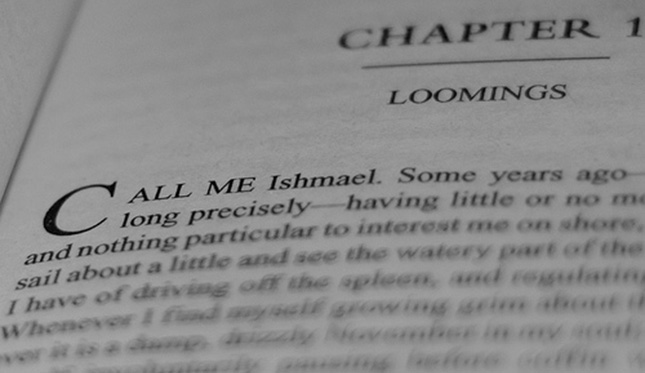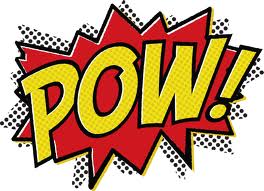A list spanning most of the 20th century.

It could be the moon, the weather, the house, the movement, the manner or the name. Maybe the voice and/or the speaker, but something about the beginning moves you forward and you want to know what happened, how come, why and why not and in order to find out, you must read ....
Here are 23 of the best opening sentences from Pulitzer Prize winning novels. The date behind the author’s name is the year that each book won.
1) “An invasion had come to the town of Adano.”
A
Bell for Adano, by John Hershey (1945)
2) “He was an old man who fished in a skiff in the Gulf
Stream and he had gone eighty-four days now without taking a fish.”
The
Old Man and the Sea, Ernest Hemingway (1953)
3) “We are talking now of summer evenings in Knoxville,
Tennessee in the time that I lived there so successfully disguised to myself as
a child.”
A
Death in the Family, James Agee (1958)
4) “Sam Braden never talked about his father.”
Journey
in the Dark, Martin Flavin (1944)
5) “The street was darkened by a smoky sunset, and light had
not yet come on in the lamps near the empty house.”
In
This Our Life, Ellen Glasgow (1942)
6) “Sayward awoke this day with the feeling that something
had happened to her.”
The
Town, Conrad Richter (1951)
7) Until he was almost ten the name stuck to him.”
So
Big, Edna Ferber (1925)
8) “On a January evening of the early seventies, Christine
Nilsson was singing in Faust at the Academy of Music in New York.”
The
Age of Innocence, Edith Wharton (1921)
9) “To the Public:
The late insurrection in Southampton has greatly excited the
public mind and led to a thousand idle, exaggerated and mischievous reports.”
The
Confessions of Nat Turner, William Styron (1968)
10) “Now I believe they will leave me alone.”
Angle
of Repose, Wallace Stegner (1972)
11) “Sometimes there was a compulsion which drew Ira Claffey
from his plantation and sent him to walk the forest.”
Andersonville,
MacKinley Kantor (1956)
12) “He was of medium height, somewhat chubby, and
good-looking, with curly red hair and an innocent, gay face, more remarkable
for a humorous air about the eyes and large mouth than for any strength of chin
or nobility of nose.”
The
Caine Mutiny, Herman Wouk (1952)
13) “The patient, an old-fashioned man, thought the nurse
made a mistake in keeping both of the windows open, and her sprightly disregard
of his protests added something to his hatred of her.”
Alice
Adams, Booth Tarkington (1922)
14) “The black people who live in the Quarters at Blue Brook
Plantation believe they are far the best black people living on the whole Neck,
as they call that long, narrow, rich strip of land lying between the sea on one
side and the river with its swamps and deserted rice fields on the other.”
Scarlet
Sister Mary, Julia Peterkin (1929)
15) “From the small crossed window of his room above the
stable in the brickyard, Yakov Bok saw people in their long overcoats running
somewhere early that morning, everybody in the same direction.”
The
Fixer, Bernard Malamud (1967)
16) “The driver of the wagon swaying through the forest and
swamp of the Ohio wilderness was a ragged girl of fourteen.”
Arrowsmith,
Sinclair Lewis (1926)
17) “There was a ball in the old Pentland house because for
the first time in nearly forty years there was a young girl in the family to be
introduced to the polite world of Boston and to the elect who had been asked to
come on from New York and Philadelphia.”
Early
Autumn, Louis Bromfield (1927)
18) “There was a run-down old toll-bridge station in the
Shoestring Valley of southern Oregon where Uncle Preston Shiveley had lived for
fifty years, outlasting a wife, two sons, several plagues of grasshoppers,
wheat rust, and caterpillars, a couple or three invasions of land-hunting
settlers and real estate speculators, and everybody else except the scattering
of old pioneers who had cockleburred themselves onto the country at about the
same time that he did.”
Honey
in the Horn, H.L. Davis (1936)
19) “It was Wan Lung’s marriage day.”
The
Good Earth, Pearl S. Buck (1932)
20) “This story at no point becomes my own.”
The
Edge of Sadness, Edwin O’Connor (1962)
21) “Grandfather said:
This is the kind of man Boon Hogganbeck was.”
The
Reivers, William Faulkner (1963)
22) “When Bob Mumson awoke in his apartment at the Sheraton
Park Hotel at seven thirty-one in the morning he had the feeling it would be a
bad day.”
Advise
and Consent, Allen Drury (1960)
23) “He was thinking of the town he had known.”
His
Family, Ernest Poole (1918)

